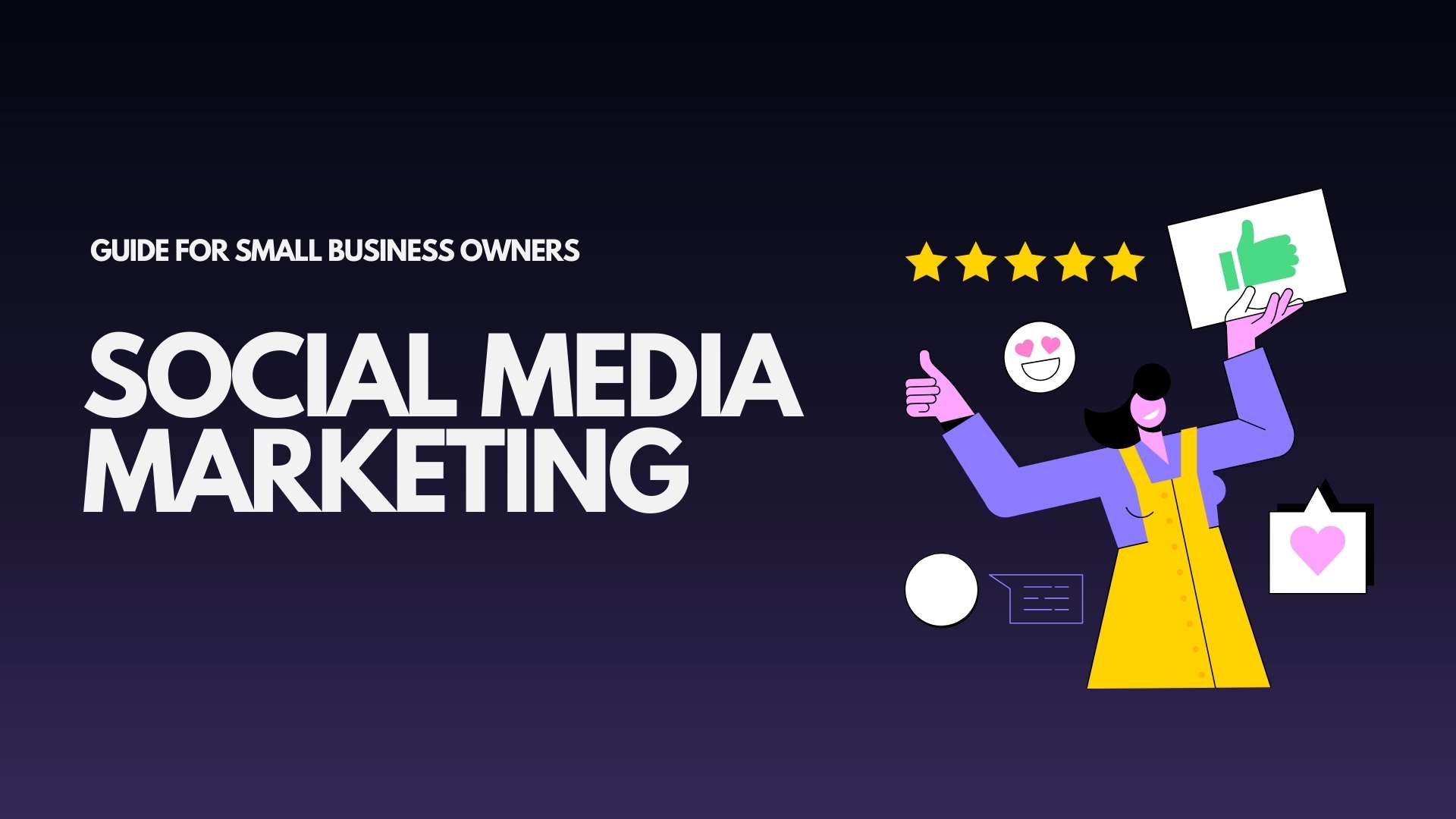Social Media Marketing Guide for Small Business Owners

What is social media marketing?
Social media marketing leverages platforms like Facebook, Instagram, YouTube, LinkedIn, and TikTok to promote your products or services, boost brand awareness, and drive website traffic. It involves sharing quality content, running ads, engaging with your audience, and analyzing metrics to refine your strategy.
Pillars of social media marketing
Social media marketing revolves around five key elements:
- Strategy: Define your goals, target audiences, key platforms, and content approach. This will guide what, where, and why you post, and determine the metrics you’ll track.
- Publishing: Create and schedule your content, deciding on posting frequency and tools to manage this process effectively.
- Community Management: Engage with your audience by responding to comments, monitoring mentions, and handling direct messages on social media.
- Advertising: Distinguish between organic content, which is free but limited by follower count and algorithms, and paid content, which can be promoted to a broader, targeted audience through social media ads.
- Analytics: Track and analyze the performance of your social media efforts by monitoring metrics such as reach, views, engagements, clicks, and mentions.
Pros and cons of social media marketing for small businesses
Social media marketing is widely embraced, with over 96% of small businesses and 97% of Fortune 500 companies incorporating it into their strategies. Below, we’ll explore the key benefits and some potential drawbacks for small e-commerce businesses.
Benefits of Social Media Marketing
- Increased Sales: An effective social media campaign can drive traffic to your website, generate leads, and enhance brand visibility, all contributing to higher sales.
- Strong ROI: Social media marketing is highly cost-effective, especially compared to expensive traditional advertising like billboards and print ads, as posting on social platforms is virtually free.
- Improved Customer Relationships: Social media enables direct interaction with customers, allowing you to address concerns and answer questions promptly, which can enhance customer satisfaction and brand perception.
Drawbacks of Social Media Marketing
Time-Consuming: Building a robust social media presence requires significant effort, including frequent posting and daily community management, which can be time-intensive.
- Requires Diverse Skills: Effective social media management demands expertise in areas such as graphic design, photography, videography, and content creation. This can be challenging for small businesses and costly if outsourced.
- Limited Reach: Social media marketing only targets users of social platforms. If your target audience is not active on these platforms, you may need to consider alternative marketing strategies.
How to develop a successful social media marketing strategy
Effective content marketing starts with a plan. Here’s how to develop your social media marketing strategy in six steps:
- Set Your Budget and Goals Assess your digital marketing budget and allocate resources for social media. Set realistic goals aligned with your business objectives. For example, target a 25% increase in traffic to gated landing pages if aiming for a 10% rise in leads. Adjust your strategy based on your budget and consider paid options if needed.
- Identify Your Target Audience Research demographics on popular social media platforms to choose where to focus. For instance, target men aged 45-65 on Facebook, YouTube, and Instagram.
- Analyze Competitors Study your competitors to see which platforms they use and their engagement levels. This helps identify where your audience is active and what content works.
- Choose Social Media Platforms Select platforms based on your audience and content needs. For example, use Facebook and Instagram for in-app shopping and Twitter or LinkedIn for link sharing.
- Define Your Social Media Brand Adapt your brand’s visuals, tone, and voice for each platform. Create brand guidelines to ensure a consistent and cohesive presence.
- Develop a Content Strategy Plan your content types, posting schedule, and times based on your goals and audience. Balance content so 80% entertains or informs, and 20% promotes your business. For example, share wellness tips and environmental impact content if promoting reusable water bottles.
Social media marketing metrics
Marketing teams use social media metrics to assess campaign effectiveness and refine strategies. Here are key metrics to track:
- Reach: The number of unique individuals who see a post.
- Impressions: How often a post is shown to users.
- Engagements: Total interactions (likes, comments, clicks, shares, messages) on a post or account.
- Engagement Rate: The percentage of viewers who engage with a post. Formula: engagement rate = post engagement / post reach.
- Amplification Rate: The percentage of followers who share a post. Formula: amplification rate = post shares / total followers.
- Click-Through Rate (CTR): The percentage of times a post’s link is clicked. Formula: CTR = post link clicks / post impressions.
- Account Views: The number of visits to your social media profiles.
- Audience Growth Rate: The speed at which your audience grows, expressed as a percentage. Formula: audience growth rate = (net new followers / total followers) x 100.
- Cost-Per-Click (CPC): The cost for each click a post receives. Formula: CPC = ad spend / number of clicks.
- Conversion Rate: The percentage of users who complete a desired action, such as a purchase. Formula: conversion rate = number of actions / number of impressions.
- Return on Investment (ROI): Profitability of a campaign. Formula: ROI = profits / total campaign cost.
- Mentions: How often users mention your brand.
- Share of Social Voice (SoSV): Your brand’s mentions compared to competitors. Formula: SoSV = (your mentions / competitor mentions) x 100.
- Social Sentiment: The ratio of positive, neutral, and negative mentions about your brand. Formula: social sentiment = (positive mentions – negative mentions) / total mentions.
Conclusion
In today’s digital landscape, social media marketing is a powerful tool for small business owners looking to expand their reach and connect with their audience. By leveraging platforms like Facebook, Instagram, and LinkedIn, you can drive engagement, build brand awareness, and ultimately grow your business. Remember, successful social media marketing requires a strategic approach, including setting clear goals, understanding your audience, and continuously analyzing performance metrics.
At Emerge Digital, we specialize in creating tailored social media strategies that align with your business objectives. Whether you’re new to social media or looking to refine your existing efforts, our expertise in Instagram marketing, Facebook marketing, and LinkedIn lead generation can help you achieve your goals effectively
Looking for a top-notch social media marketing agency in India? Our team at Emerge consists of experienced professionals offering comprehensive social media marketing services tailored to your specific needs. From crafting compelling campaigns to amplifying your online presence, we’ll help you build a strong social media footprint. As one of the best social media marketing companies in India, we’re committed to delivering innovative solutions that drive engagement and success
More Related Links
- 41 Great Content Ideas for Social Media Creatives
- 21 Instagram Interaction Post Ideas for Increasing Your Engagement Rates
About Author
 Meet Ritu, an expert writer in social media marketing. Her articles provide insightful guidance navigating the online retail and web technology landscapes.
Meet Ritu, an expert writer in social media marketing. Her articles provide insightful guidance navigating the online retail and web technology landscapes.




